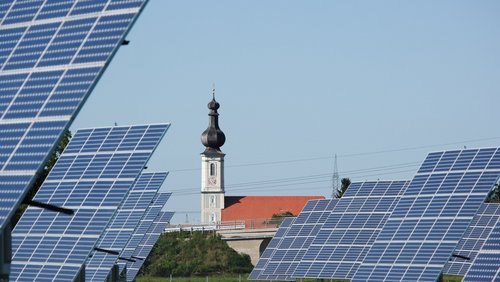The increasing use of digital networking in complex industrial processes opens up new potential for more sustainability. This paper delivers the first empirical findings on the relevance of digitalisation for improving material efficiency in German industry based on a unique dataset including nearly 600 manufacturing firms.
Digitalisation as Enabler Towards a Sustainable Circular Economy in Germany
Article in Intereconomics

The increasing use of digital networking in complex industrial processes opens up new potential for more sustainability. This paper delivers the first empirical findings on the relevance of digitalisation for improving material efficiency in German industry based on a unique dataset including nearly 600 manufacturing firms.
The survey results indicate that the opportunities of digital networking for increasing material efficiency are only being used to a limited extent thus far, primarily for traditional efficiency-raising measures optimising manufacturing processes.
Moving towards more sustainable patterns of production and consumption was globally agreed upon as an essential part of the United Nations’ Agenda 2030 and its Sustainable Development Goals (SDGs). The SDGs provide an important impulse for progressing from a linear to a circular economy. With 12 of the 17 SDGs depending directly on the sustainable use of natural resources, increasing resource effi ciency is a key strategy.1 Targets 8.4, 9.4 and 12.2 place a special emphasis on retrofi tting industries to improve resource-use effi ciency by 2030. Target 12.4, which aims at avoiding waste through prevention, reduction, recycling and reuse, enhances the idea of a circular economy.2 The rationale behind a circular economy is to keep resources in use for as long as possible. The approach is to look at the complete life cycle of a resource – from extraction to product design, production, consumption and ultimately waste management, e.g. recycling. A circular economy aims to minimise both material input and waste generation by resource-saving product design (eco-design) and by recycling and reusing products and materials. Through recycling and reuse, waste is turned back into a resource.
Adriana Neligan: Digitalisation as Enabler Towards a Sustainable Circular Economy in Germany
Article in Intereconomics


Net-Zero Industry Act: Europas Aufholbedarf bei grünen Technologien
Die EU setzt mit dem Net-Zero Industry Act (NZIA) den Rahmen für die Förderung grüner Technologien und gibt Zielmarken für die europäische Produktion solcher Anlagen aus. Während die EU-Pläne auch für den deutschen Anlagenbau große Potenziale versprechen, ist ...
IW
Digitaler Produktpass — Enabler der Circular Economy
In einer Circular Economy ist ein neues Verständnis des Wirtschaftens sowie ein alternativer Umgang mit Rohstoffen erforderlich. Ressourcen sollen so lange wie möglich genutzt werden, um sowohl den Material- und Energieverbrauch als auch die Abfälle und ...
IW